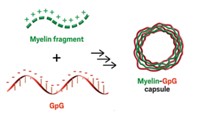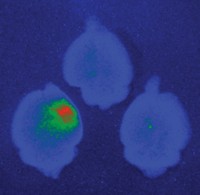Advertisement
Grab your lab coat. Let's get started
Welcome!
Welcome!
Create an account below to get 6 C&EN articles per month, receive newsletters and more - all free.
It seems this is your first time logging in online. Please enter the following information to continue.
As an ACS member you automatically get access to this site. All we need is few more details to create your reading experience.
Not you? Sign in with a different account.
Not you? Sign in with a different account.
ERROR 1
ERROR 1
ERROR 2
ERROR 2
ERROR 2
ERROR 2
ERROR 2
Password and Confirm password must match.
If you have an ACS member number, please enter it here so we can link this account to your membership. (optional)
ERROR 2
ACS values your privacy. By submitting your information, you are gaining access to C&EN and subscribing to our weekly newsletter. We use the information you provide to make your reading experience better, and we will never sell your data to third party members.
Materials
Tiny Technology Promising For MS
When injected into mice with multiple sclerosis symptoms, peptide-coated particles halt progression of the disease
by Lauren K. Wolf
November 27, 2012
| A version of this story appeared in
Volume 90, Issue 48
Nanoscale particles made of the biodegradable copolymer poly(lactide-co-glycolide) might one day help treat autoimmune diseases such as multiple sclerosis (MS), according to a report (Nat. Biotechnol., DOI: 10.1038/nbt.2434). MS occurs when the body’s own immune system attacks myelin—a mixture of lipids and proteins that insulate nerve fibers and assist nerve signal transmission. A research team led by Stephen D. Miller and Lonnie D. Shea of Northwestern University has designed and tested injectable 500-nm peptide-coated particles of this material as well as polystyrene. The particles are coated in myelin peptide segments (antigens) that, when presented to immune cells such as T cells, induce tolerance to the nerve material and halt the progression of MS symptoms in mice. By injecting peptide-coated particles into mice seven days before the normal onset of MS symptoms, the researchers completely protected the rodents from disease. Shea says the team plans to also test the technology on other immune disorders such as asthma.





Join the conversation
Contact the reporter
Submit a Letter to the Editor for publication
Engage with us on Twitter